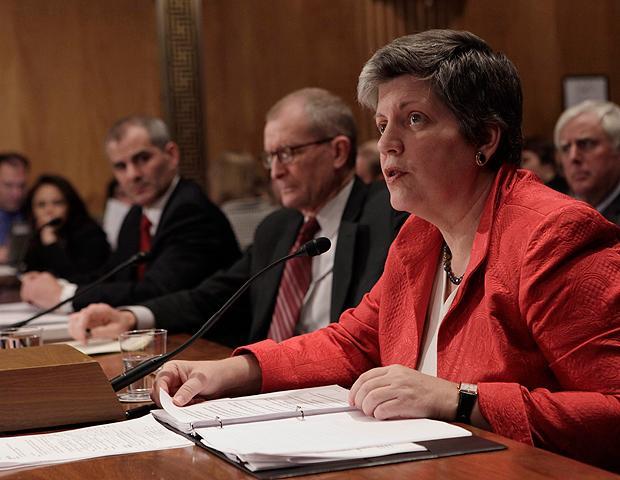Advertisement
Intel Chief Admits Christmas Bomb Case Mishandled

The nation's intelligence chief said Wednesday that the Christmas Day airline bombing suspect should have been treated as a terror suspect when the plane landed. That would have meant questioning him initially by special interrogators rather than standard law enforcement officers.
Umar Farouk Abdulmutallab was interviewed by federal law enforcement investigators when Northwest Flight 253 landed in Detroit after he allegedly tried to detonate a homemade bomb sneaked through airport security in Nigeria and Amsterdam. Abdulmutallab is being held in a prison about 50 miles outside of Detroit.
Director of National Intelligence Dennis Blair told the Senate Homeland Security Committee that he was not consulted on whether Abdulmutallab should be questioned by the recently created High-Value Detainee Interrogation Group, or HIG.
"That unit was created exactly for this purpose," Blair said. "We did not invoke the HIG in this case. We should have."
Blair also said criteria for adding people to the government's "no fly" list was too legalistic. And he said that in recent years there has been pressure to shrink rather than expand the list because of a cascade of complaints from people getting "hassled" by authorities. "Why are you searching grandmothers?" was a too-common refrain, he said.
"I should not have given in to that pressure," Blair said. Since the Christmas episode, the list has been expanded, he said.
In a separate hearing before the Senate Judiciary Committee, FBI Director Robert Mueller said al-Qaida and its offshoots are spreading and rebuilding. He said the U.S. has dismantled much of al-Qaida's infrastructure in Afghanistan, but the terror network and its associated groups are rebuilding in Pakistan, Yemen, and the Horn of Africa.
In a testy exchange with Sen. Jeff Sessions of Alabama, the senior Republican on the committee, Mueller said Abdulmutallab made statements to FBI agents before being given his Miranda warnings.
Sessions argued it was inappropriate to arrest the suspect and put him in the criminal justice system, and said that instead he should have been declared an enemy combatant and turned over to military authorities for interrogation.
"Intelligence is what saves lives," said Sessions, his voice rising. "It sounds to me like the guys on the ground just made a decision on the fly."
Since the incident, Republicans have argued the Obama administration mishandled the case by treating it as a crime rather than an act of war.
Mueller defended the decision to arrest the young Nigerian as very appropriate "based on an ongoing very fluid situation."
The director insisted it was important for the FBI to talk to the suspect not just to find out what he'd done but find out "what other threats were out there that need to be addressed."
Also testifying before the Senate Judiciary Committee was State Department official Patrick Kennedy, who said one of the flaws exposed by the Christmas case was the name-checking software at his agency.
By misspelling the suspect's name, agency officials did not realize he had already been issued a visa. Such alternative spelling software was used only in checking names before a visa was issued, Kennedy said.
"We slipped up," said Kennedy, under secretary of state for management. He admitted that a misspelling of the suspect's name and a lack of a particular type of software helped Abdulmutallab avoid detection even after his father had alerted U.S. authorities to indications that he had become radicalized.
The software is now being added for name-checks done after a visa is granted, Kennedy said.
Senior administration officials are on Capitol Hill for a series of congressional hearings about how Abdulmutallab allegedly was allowed to board the plane with the makings of an improvised bomb.
A White House report this month outlined a series of missteps, including name misspellings, ignored warnings and oversights. But for a failed detonator and the swift action of passengers, the attack might have killed all 289 people aboard.
The election Tuesday of Republican Scott Brown to a longtime-Democratic Senate seat in Massachusetts could provide the GOP with more incentive to take on the Obama administration's national security policy. Brown, who made national security a key part of his campaign, will deprive Democrats of a key 60th vote necessary to keep Republicans from blocking their agenda.
The White House is bracing for the tougher Senate outlook.
Wednesday morning, the administration's choice to lead the Transportation Security Administration withdrew his name, saying his nomination had become a lightning rod for those with a political agenda.
This program aired on January 20, 2010. The audio for this program is not available.